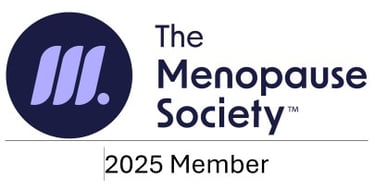The Neglect of Women's Health: Addressing the Challenges of Menopause


Menopause is a natural phase in a woman's life, marking the end of her reproductive years. It is a significant milestone that affects approximately 50% of the population, yet it often goes unnoticed and unaddressed. In this blog post, we will shed light on the challenges women face during menopause and the need for healthcare professionals to provide adequate attention, treatment, and support.
The Importance of Recognizing Menopause
Menopause is not just a mere inconvenience; it is a complex health condition that can have a profound impact on a woman's physical, emotional, and mental well-being. Unfortunately, many doctors fail to acknowledge its significance, dismissing it as a normal part of aging. This dismissal undermines the experiences and struggles women face during this transitional phase.
Women going through menopause often experience a range of symptoms, including hot flashes, night sweats, mood swings, insomnia, and vaginal dryness. These symptoms can be debilitating, affecting their quality of life and overall health. It is crucial for healthcare professionals to recognize and validate these experiences, offering appropriate treatment options and support.
The Need for Comprehensive Treatment
While menopause is a natural process, it does not mean that women should suffer in silence. There are various treatment options available to alleviate the symptoms and improve the overall well-being of women during menopause. Hormone replacement therapy (HRT), for example, can effectively manage symptoms and reduce the risk of certain health conditions associated with menopause.
However, the decision to pursue HRT or any other treatment should be made on an individual basis, taking into account the woman's medical history, preferences, and concerns. It is the responsibility of healthcare professionals to provide accurate information, discuss the potential benefits and risks, and guide women in making informed decisions about their health.
Supporting Women through Menopause
Aside from medical interventions, emotional and psychological support is equally important during menopause. Women may experience a sense of loss or a shift in their identity as they navigate this new phase of life. It is crucial for doctors to create a safe and compassionate space for women to express their concerns and fears.
Furthermore, healthcare professionals should educate women about the importance of adopting a healthy lifestyle, including regular exercise, a balanced diet, and stress management techniques. These lifestyle modifications can significantly improve the overall well-being of women during menopause and reduce the risk of certain health conditions.
Conclusion
Menopause is a significant health condition that affects millions of women worldwide. It is high time that healthcare professionals recognize the importance of providing adequate attention, treatment, and support to women going through this transitional phase. By doing so, we can empower women to navigate menopause with dignity and ensure their overall well-being.


